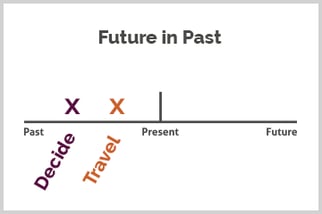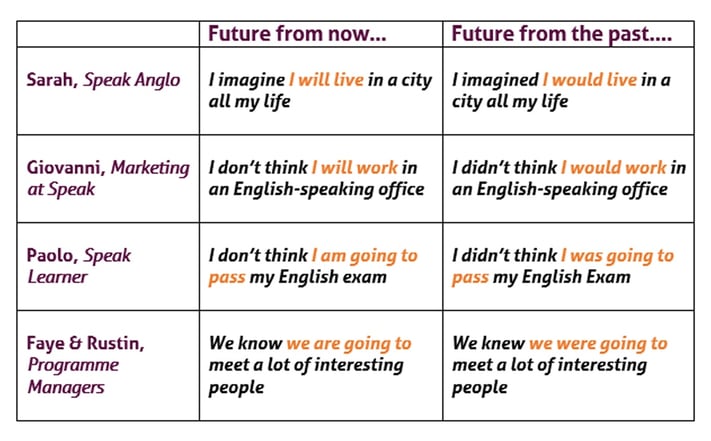Every edition, we want to provide you with the opportunity to discover new vocabulary or grammar and to see how it is used in real contexts.
VOCABULARY
This edition we have identified topic-related language from 6 Reasons To Step Outside Your Comfort Zone from The Huffington Post.
Phrases about Staying in your Comfort Zone:
- Humans are creatures of comfort.
- We're wired to seek out comfort.
- In our comfort zone, there is a sense of familiarity, security and certainty.
- Psychologically, our comfort zone is the place we're most at home.
- There's nothing wrong with being in your comfort zone, unless you get too comfortable and start holding yourself back
Phrases about Stepping Out of your Comfort Zone:
- We’re opening ourselves up to the possibility of stress and anxiety.
- A little bit of healthy stress can actually act as a catalyst for growth
- [Leaving] can create the conditions for optimal performance.
- When we challenge ourselves, we tend to rise to the occasion.
- Those who are willing to take risks… will reap the biggest rewards.
GRAMMAR
In this edition of Speak for Yourself, the Grammar in Context is taken from Betty Bromage’s experience as a wing-walker, a hobby which she started on her 87th birthday.
Betty describes her interest in wing walking, saying:
"When I was young, I never imagined I’d do something as daring as this."
"Quando ero giovane non avrei mai immaginato di fare una cosa così rischiosa".
"I’ve got two young grandsons. When I said I was going to do a wing walk, one of them said: “Well, if that’s what you really want to do.”
"Ho due nipoti. Quando ho detto loro che avrei fatto un volo acrobatico, uno di loro mi ha detto: "Ok, se è proprio quello che vuoi fare...".

These examples demonstrate an area of grammar named: The Future in the Past
The Future in the Past
Meaning:
When talking about the past, we sometimes want to mention an intention or plan in the future as seen from that moment.
“When I was at university, I decided I was going to travel the world for a year after graduation”
"Quando ero all'università decisi che, dopo la laurea, avrei girato il mondo per un anno."

Form:
There are different ways to form the Future in the Past. Most of the time we turn future structures (for example will or to be going to) into past structures (would or was/were going to):
1. Would (in this case, the past of will)
"I never imagined I would do something as daring as wing walking".
Past form of: “I don’t imagine I will do something as daring as wing walking”.
2. Was/Were going to (the past of to be going to).
"When I said I was going to do a wing walk…".
Past form of: “I am going to do a wing walk”.
Examples from Speak










